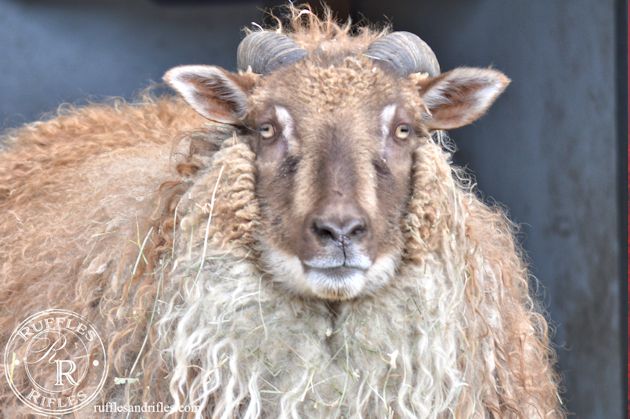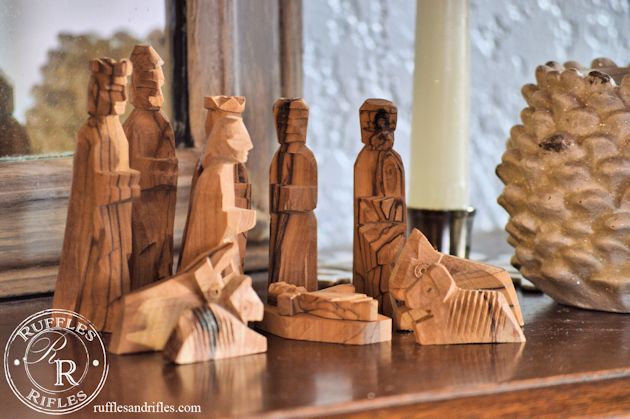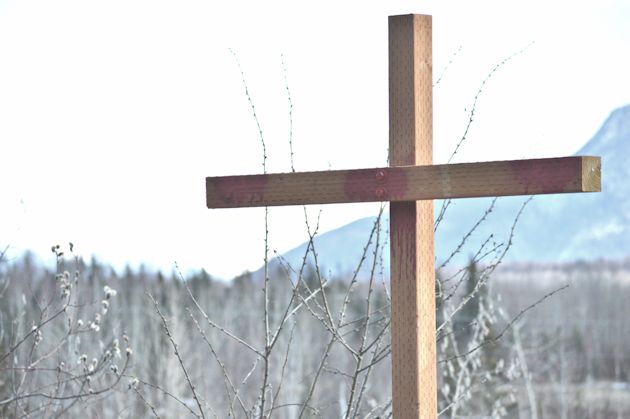The Passover Lamb
This year, Good Friday falls on the Jewish calendar on the first day of Passover. I really wish our Christian calendar followed heed every year to this Jewish holiday. Because before the foundations of the world were laid, He knew He would offer up His life during Passover. Everything God does is with purpose. The intentional hands that drew up the existence of time, predetermined the moment time when all eternity would hang on the hands nailed to a cross.
What makes the context of time Jesus gave his life so significant? The answer is longer and deeper than I have the capability to address. However, if we trace a story of a lamb and a feast called Passover through the story of the Bible, the depth and wonder of Jesus’s sacrifice at the cross can be more fully understood.
In the last fifteen years of my own studying and realizing the significance of Passover and the context that Jesus our Passover Lamb died at the same time that the Passover lambs were being slaughtered at the temple. I’ve come to respect the significance of Jesus once and for all fulfilling the Passover, this time not just for the Hebrews but for all of mankind. Sometimes I wonder, if as Christians, we’ve reduced what we read of the last Passover meal to a quick bite of a cracker and a sip of grape juice (or wine depending on your denomination)? Don’t get me wrong, communion is always significant, it’s always holy. And we are instructed to remember often. But in Luke 22, at the Passover meal, Jesus breaks the unleavened bread and says, “This is my body broken for you. Do this in rememberance of me.” What if, all these years we’ve taken communion out of context? What if when He said, “do this” he was referring to the broken bread and cups of wine of the Passover meal? What if we have been passing up on a full course meal in exchange for a fast-food style communion?
While in Bible college I was studied the Hallel Psalms — Psalms 113-118. They are the Psalms recited during many Jewish religious festivals, including Passover. It was as I studied I realized these five Psalms were recited at the Last Supper, the Passover meal where Jesus reclined with his disciples. They remembered, “When Israel came out of Egypt…” from Psalm 114, and Jesus right before his exit was declaring from Psalm 118 about himself, “The stone the builders rejected has become the capstone…with boughs in hand, join in the festal procession up to the horns of the altar,” all the while knowing he was about to lay his life on the altar once and for all to be poured out, just at the last cup of wine was poured.
So this year, as we tread on Holy Week, I hope we will stop for more than a bite of a cracker and a sip of juice, and remember. Take time and remember the Passover during a meal, read the Hallel Psalms, remember the plagues, remember the bitterness of slavery, and remember the Passover Lamb, the bread broken and cup poured out, the blood applied over our lives once and for all.
The story of the lamb ends in the book of Revelation seated on a throne. And all of eternity hinges on the story of a Father giving a humble lamb to be sacrificed on a cross for the sins of the world. But the story of the lamb begins humbly on a mountain, with a faithful father and his son.
God Will Provide a Lamb
Silent sobs of a father echoed across the heights of Mount Moriah. Simple, sheer obedience and an undying faith accompanied Abraham up the mountain to sacrifice his beloved son, the love of his life, the fulfillment of God’s promise. Breaking the deafening silence, the boy, laden with wood for the burnt offering begged, “Father, the fire and wood are here, but where is the lamb for the burnt offering?” (Genesis 22:7 NIV). And Abraham’s voice replied, with a prophetic faith beyond even his own understanding, “God will provide a lamb” (Genesis 22:8).

The pain, the anguish, the questions, the seeming misunderstanding of a promise all collided in a moment; a moment that hung heavy and long. The father’s weathered arm reached up, grasping the courage to plunge a knife into his beloved son, but in that heavy moment, the sound of a Voice reached the ears of the old faithful man. Relief cut through the air, like a vibrant wind on a scorching day. The angel of LORD paused the scene, Jesus himself, provided the ram in the thicket. The voice Abraham heard would be the One to silence the need for sacrifice, he would become the son slain.
“God will provide a lamb.” The phrase echoed for hundreds of years, longing to be fulfilled.

Hundreds of years later, Abraham’s ancestors were living in Egypt, harassed and in bondage to a foreign people. Unrelenting plagues and convincing words from Moses would not change the Pharaoh’s mind to release the Hebrew people back to their own land. With negotiations for a peaceful exit going nowhere, the LORD stepped in to help the Hebrews. He told Moses, “Tell the whole community of Israel that on the tenth day of this month (Nisan) each man is to take a lamb for his family, one for each household” (Exodus 12:3). He continued, “The animals you choose must be year-old males without defect…. Take care of them until the 14th day of the month when all the people of the community of Israel must slaughter them at twilight” (Exodus 12:5-6).
What did a lamb have to do with a final and safe exodus? The answer was everything.

The LORD went on to explain that this blood from the lamb would actually spare the lives of the firstborn sons. With the blood on the doorposts, the Hebrews were literally “passed-over” by the angel of death, while the final death plague temporarily paralyzed the grief stricken Egyptians so that the Hebrews could exit. Why a lamb? Why was the death of one creature the mark of another’s life? Did the people ever wonder how long this slaughtering of life must go on? Over and over again, lambs, goats, heifers, and birds were slaughtered and their life blood poured out to temporarily cover people’s very lives. How much did it cost? The Hebrews livelihood of raising animals was constantly being given over for sacrifices.

The writer of the book of Hebrews reflected on the past, “The law is only a shadow of the good things that are coming – not the realities themselves. For this reason it can never, by the same sacrifices repeated endlessly year after year, make perfect those who draw near to worship. If it could, they would they have been cleansed once for all, and would no longer have felt guilty for their sins. But those sacrifices are an annual reminder for sins, because it is impossible for the blood of bulls and goats to take away sins…Day after day every priest stands and performs his religious duties, and again and again he offers the same sacrifices which can never take away sins” (Hebrews 10:1-4, 11). The shedding of life seemed to be an endless, bloody, stinky, messy task; a task that was never completely fulfilled.
But then, in an instant, the destiny hanging on the words of Abraham came to life. “God will provide a lamb” echoed throughout time, until one night, in a crowded little town, the Lamb was born in a stable, much like other little lambs. As the excited shepherds came in and worshiped, it was as if God was showing them, this is the last Lamb, after this lamb is given, you will not have to give yours up anymore.

Jesus, revealed as the Lamb, was not a hidden message and not a revelation given solely to the shepherds. At the beginning of Jesus’ ministry, his cousin, John the Baptist introduced him to a crowd, “Look, the Lamb of God, who takes away the sins of the world” (John 1:29). The words Abraham had spoken thousands of years before suddenly collided with the fulfillment of the word. The Father’s love was about to be unleashed to an unyielding world with a violence and fury that only perfect love could bear.
It was a time of remembrance again, the time of Passover. Again, as was done for hundreds of years, on the tenth day of Nisan, the lamb was chosen. This time the Lamb came riding in to Jerusalem on a donkey, while the naive people cried, “Save us (hosanna), Son of David.” The Lamb was betrayed and taken to the High Priest, the one whose job was to implement the sacrifices. Jesus “was oppressed and afflicted, yet he did not open his mouth; he was led like a lamb to the slaughter”(Isaiah 53:7). With ultimate authority the High Priest unknowingly handed over the last sacrifice, the day seemed obvious for those who could see, it was the 14th of Nisan, the day to slaughter the Passover Lamb.

As the High Priest was slaughtering the Passover lambs in the temple gates, the Lamb that looked down on Abraham and Isaac, who saw the doorposts covered in blood, who was provided before the foundation of the world declared with a deafening reality to all eternity, “It is finished!”
Because “when this priest had offered for all time one sacrifice for sins, he sat down at the right hand of God.” Hebrews 10:12 The finished work of the cross beckons us to look, to behold the lamb, seated on the throne who purchased men for God with his blood.
May you be richly blessed as you remember the Lamb,
Cheryl



4 Responses to The Passover Lamb